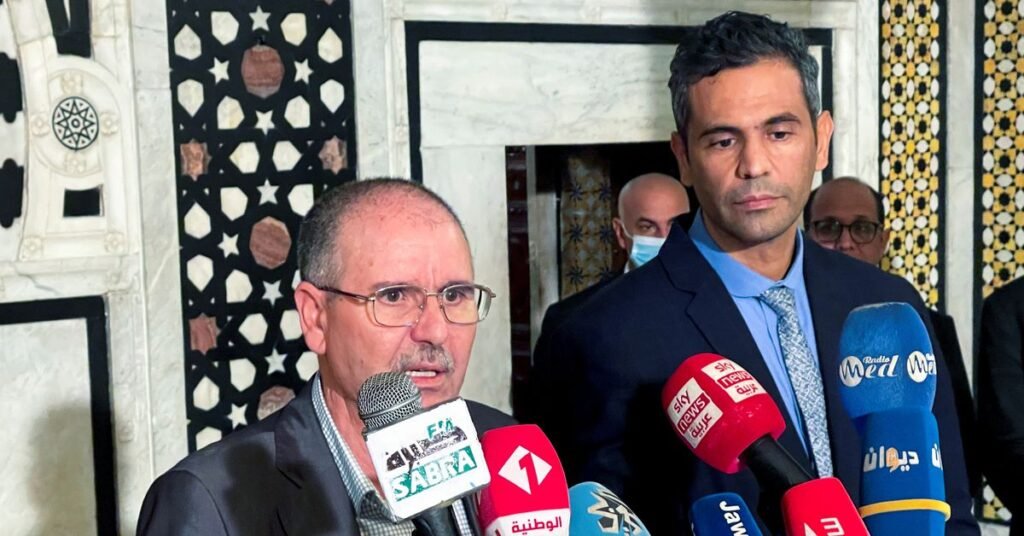TUNIS, Dec 26 (Reuters) – Tunisia's highly effective UGTT union will maintain mass protests and “occupy the streets” quickly to point out its rejection of subsequent yr's austerity funds, the chief of the union stated on Monday, in its strongest problem to the federal government of President Kais Saied but.
The union, with greater than one million members, has confirmed capable of paralyse the financial system with strikes. It has at occasions backed Saied after he seized most powers final yr, however on different events has voiced opposition.
“Why will we settle for this case? We is not going to settle for it…we'll occupy the streets to defend our selections and the curiosity of the individuals,” Noureddine Taboubi, the top of UGTT, stated.
Tunisia's 2023 funds expects to cut back the fiscal deficit to five.2% subsequent yr from a forecast 7.7% this yr, pushed by unpopular reforms that would pave the best way for a last cope with the Worldwide Financial Fund on a rescue package deal.
Tunisia will elevate taxes for a number of professions, together with attorneys, engineers and accountants, from 13% to 19%. Taboubi stated that this authorities is “a tax-collecting authorities…the Finance Legislation will increase the struggling of Tunisians”.
Throughout 2023, which Economic system Minister Samir Saeed stated can be a “very tough yr”, the federal government will even cut back subsidies' expenditures by 26.4 p.c, primarily in vitality and meals.
This month, the federal government raised the costs of ingesting water and is predicted to continuously elevate gas costs subsequent yr to cut back the rising vitality deficit.
The funds sparked widespread rejection from some professions. The attorneys threatened in an announcement what it referred to as “a tax disobedience”.
Tunisia has reached a staff-level settlement with the IMF for a $1.9 billion rescue package deal in alternate for unpopular reforms, together with slicing meals and vitality subsidies, and overhauling public firms. It goals to achieve a last deal early subsequent yr.
The 2023 funds confirmed that wage invoice within the public sector will drop from 15.1% in 2022 to 14% subsequent yr, a important reform demanded by the IMF.
Reporting by Tarek Amara
Modifying by Alistair Bell
: .

